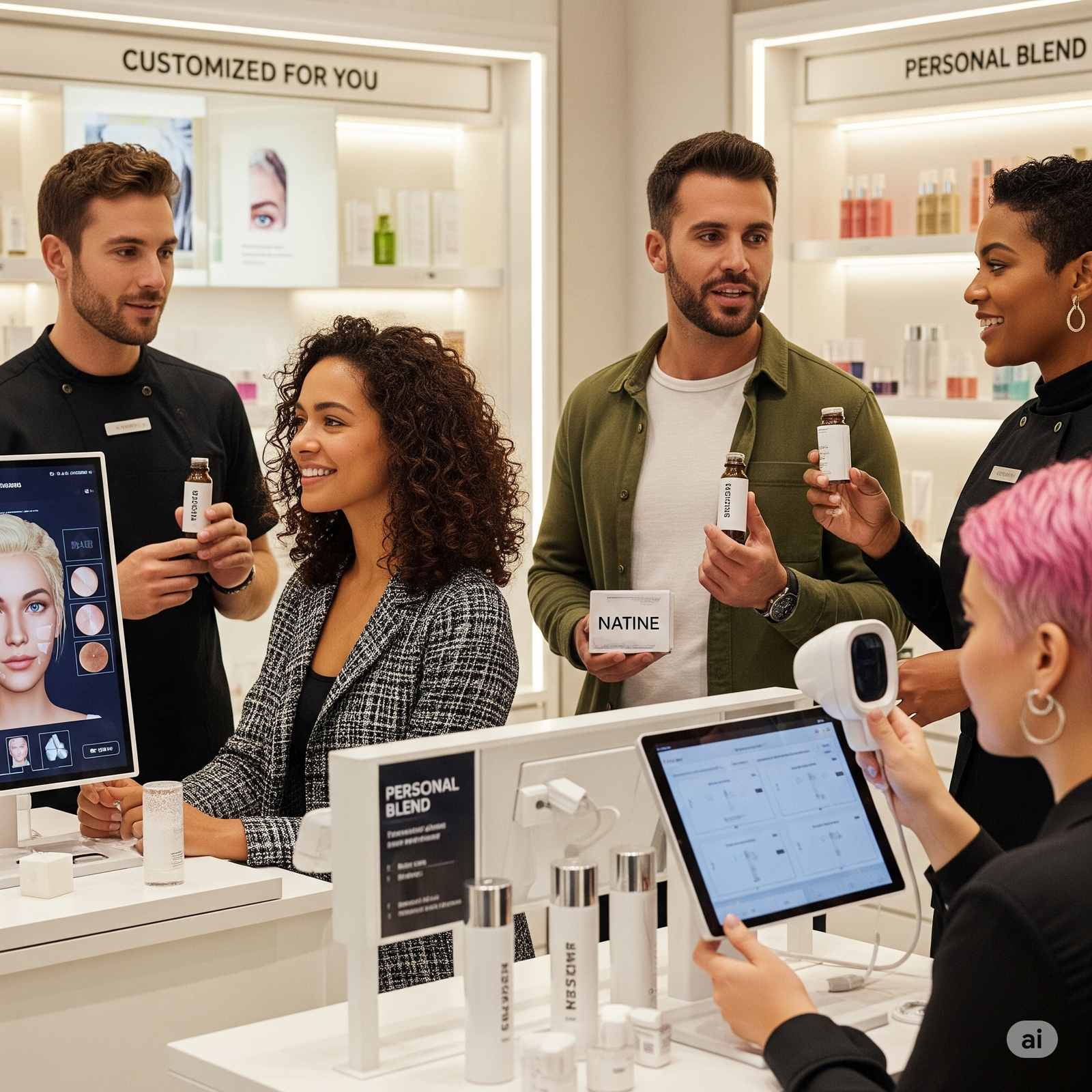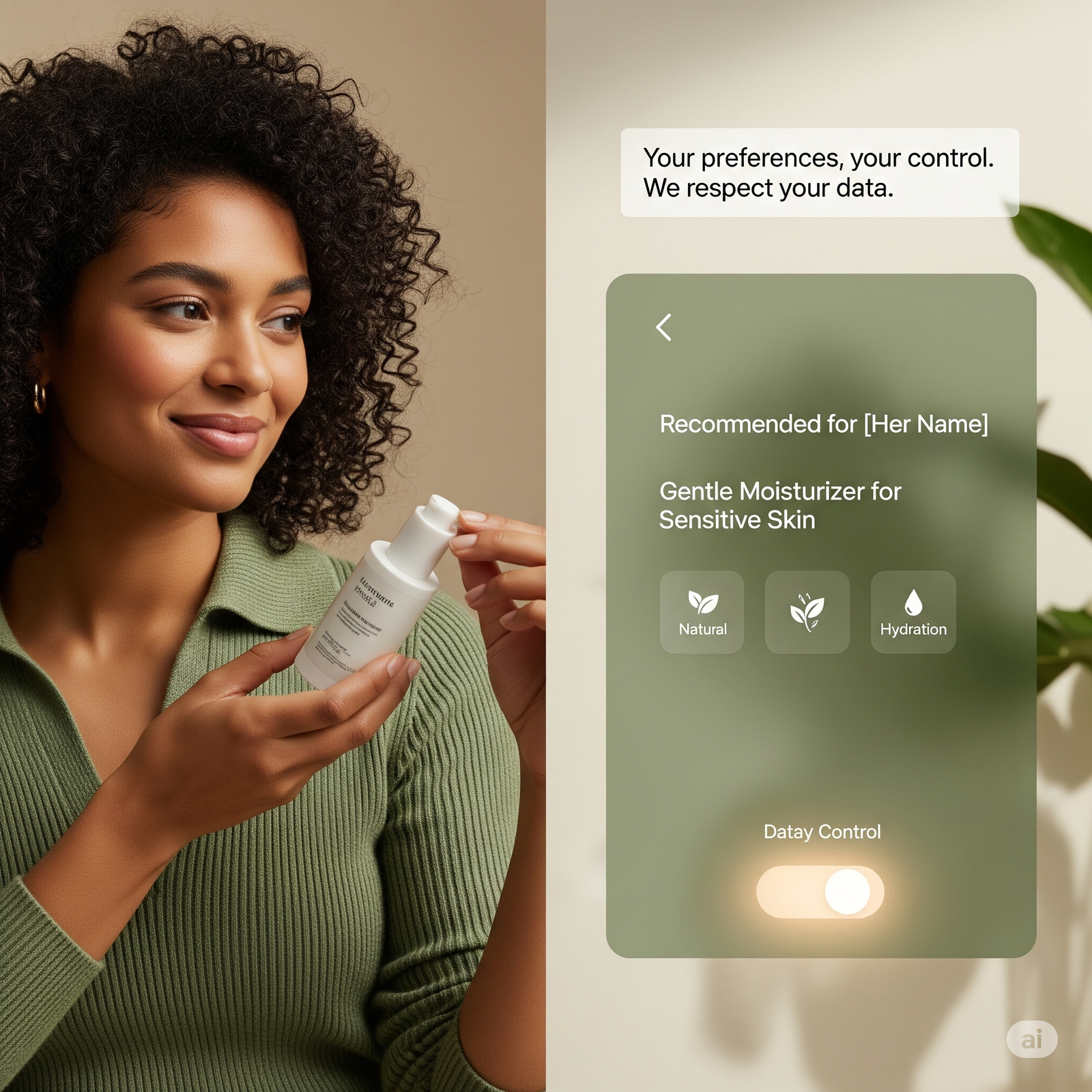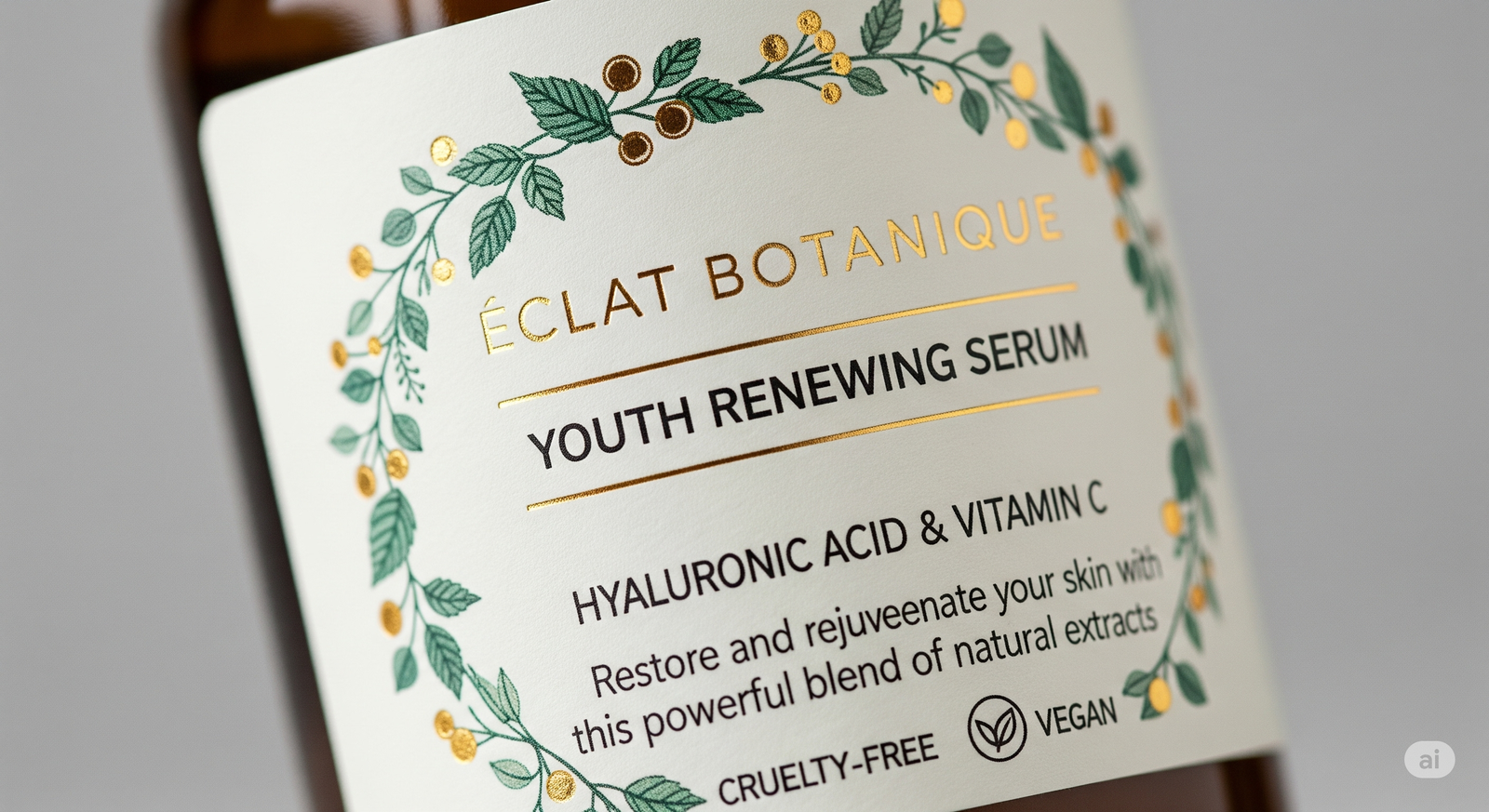Hyper-Personalization in Beauty Marketing: The Next Frontier
Discover how AI beauty marketing and personalization are reshaping the industry. Learn how Admigos powers personalized skincare, campaigns, and loyalty at scale.
28 Jul'25
By Niharika Paswan


Hyper-Personalization in Beauty Marketing: The Next Frontier
The future of beauty is not just clean or conscious it’s personal. As consumers demand more control over what they put on their skin, hair, and face, personalization has become the new baseline, not the bonus. Beauty brands are now expected to understand each individual’s needs, tone, routine, and even mood. The shift from mass marketing to hyper-personalized experiences is no longer optional, it’s essential.
At the heart of this transformation is AI. From product recommendations to targeted promotions, AI is powering the next wave of beauty personalization. Admigos stands at the forefront of this change, offering brands an intelligent engine for real-time data insights, behavior mapping, and omnichannel personalization at scale.
This article explores how AI-driven strategies are reshaping beauty marketing, what works, and how Admigos enables brands to deliver hyper-personalized campaigns that convert and build loyalty.
What Is Hyper-Personalization in Beauty

Hyper-personalization goes beyond segmentation. It’s not about sending different emails to Gen Z versus Millennials. It’s about analyzing customer data skin type, purchase history, tone preferences, even local weather to recommend the exact serum, routine, or content someone needs right now.
In beauty, this can show up as:
- Dynamic product recommendations tailored to skin goals
- Smart mirrors offering real-time skin diagnostics and shade matches
- Loyalty programs based on actual usage patterns, not just spend
- Personalized ingredient education through reels, mailers, or chat
- Triggered campaigns based on replenishment cycles or seasonal needs
As the industry becomes more saturated, beauty personalization is what sets brands apart. And the only way to do it at scale is through AI and deep data integration. BCG analyzes what personalization means to today’s consumers and how brands can deliver
Why Beauty Consumers Now Expect Personalization

Consumers, especially in skincare and wellness, are no longer swayed by blanket promises. They want relevance, accuracy, and responsiveness. A serum that works for "most skin types" feels lazy compared to one that’s chosen for your skin after an analysis.
Three factors driving the demand for personalization:
- Skin literacy: Consumers understand ingredients, actives, and pH levels more than ever. They expect tailored advice.
- Influencer saturation: With hundreds of product recommendations flooding social platforms daily, consumers crave curation over choice.
- Tech immersion: Try-on filters, AI chatbots, and virtual dermatologists have raised the bar for what "smart" beauty feels like.
According to a 2024 McKinsey report, 71 percent of consumers say they’re more likely to buy from a brand that offers personalized experiences. The challenge is delivering this at scale without losing authenticity. That’s where AI engines like Admigos come in.
How Admigos Powers Hyper-Personalization for Beauty Brands
Admigos helps beauty brands turn scattered consumer data into strategic personalization moments. Its AI beauty marketing engine integrates across CRM, ecommerce, loyalty, and campaign channels by building a unified customer profile that can trigger timely, relevant experiences.
The Admigos data engine analyzes:
- Skin concerns based on quiz responses, reviews, or uploads.
- Purchase history and frequency.
- Browsing patterns on site and app.
- Sentiment across comments and DMs.
- Geo-location and climate impact on skin and hair.
- Engagement with previous campaigns or influencers.
This data powers decision engines that fuel every stage of the journey from discovery to re-engagement.
Admigos AI Personalization Use Cases:
- Dynamic homepage curation: First-time visitors see content aligned with their quiz profile or last touchpoint.
- Email automation by concern: Dry skin users get winter layering routines, oily skin users get pore-control edits.
- Loyalty segmentation: High-LTV shoppers are offered early access to drops that match their usual purchases.
- Personalized shade recommendations: Based on selfies, lighting conditions, and regional skin tones.
- Smart replenishment nudges: Products are suggested based on previous usage patterns and reviews.
- Admigos does not just track data. It contextualizes it in a beauty-specific language that marketing and product teams can use to build more meaningful, higher-converting experiences.
Experience: How Leading Brands Are Using Personalization in Beauty
Some of the most impactful campaigns in recent years have relied on hyper-personalization to stand out and connect:
- Clinique's Clinical Reality Tool: This AI diagnostic system helped Clinique personalize product suggestions based on photo analysis.
- Sephora’s Color iQ System: Matches foundation shades with high accuracy, improving in-store and online shade selection.
- Function of Beauty: Known for its custom shampoo and skincare based on individual quizzes and hair goals.
- Lancôme's Skin Screen: Uses skin analysis tech to suggest serums and treatment routines through their website and in-store devices.
Admigos has helped mid-sized indie brands achieve similar capabilities through flexible integrations and A/B testing.
The Architecture Behind AI Beauty Marketing
Delivering real-time personalization requires more than just a CRM. It requires a layered data engine that connects inputs and insights across:
- First-party data: purchase behavior, quiz responses.
- Zero-party data: skin type, tone preferences, routines.
- Behavioral signals: clicks, watch time, scroll depth.
- Sentiment signals: review tone, DM analysis.
- Location and environmental context.
Admigos builds this architecture using modular APIs and omnichannel tracking. Whether it's a WhatsApp beauty quiz or an influencer promo code scanned in-store, the data flows into one user view. From here, AI models score engagement, predict churn, and personalize outreach.
This setup allows brands to run campaigns not by audience size, but by audience readiness. It’s not about sending a serum ad to 500K people, it’s about sending it to the 20K whose hydration score dropped last week. Forbes explores how the era of personalization in marketing is evolving into a new focus on delivering true relevance to consumers.
How to Implement Personalization Without Overstepping

One major concern with personalization is privacy. Beauty brands must strike the right balance between tailored and invasive. Admigos follows strict opt-in protocols, transparent data use disclosures, and regional data protection compliance (like GDPR and India’s DPDP Act).
To maintain trust while personalizing:
- Always allow customization opt-outs
- Show consumers the benefit: fewer irrelevant messages, better recommendations
- Use quizzes or skin scans as value exchanges, not forced data grabs
- Avoid hyper-targeting on sensitive concerns unless users explicitly engage (e.g. acne, aging)
Admigos dashboards come with built-in controls to manage audience sensitivity and trigger rules that avoid retargeting fatigue or data overuse. Shopify highlights the future of personalization and key trends to watch in 2025 that are set to redefine customer experiences.
Loyalty and Personalization: A Powerful Feedback Loop
Personalization also enhances loyalty. When customers feel seen, they stick around. Admigos enables brands to build loyalty programs that evolve with each user:
- Tier upgrades based on skin journey milestones.
- Birthday gifts tailored to skin concern or color tone.
- Product drop alerts based on what users are most likely to restock.
- Ingredient education based on what they’ve previously bought or skipped.
Instead of points-for-purchase models, beauty brands are shifting to relevance-for-loyalty systems. The more data users share, the more valuable and targeted their experiences become. One brand using Admigos saw loyalty program engagement double after personalizing the dashboard visuals to match skin type. Instead of generic rewards, users saw tailored product picks, how-to videos, and goal-tracking tools all tied back to their original quiz data.
Metrics That Define Success in Beauty Personalization
To track success, Admigos helps brands measure personalization impact beyond vanity metrics. The focus shifts from CTR to CLV, from likes to product match accuracy.
Key KPIs Admigos tracks include:
- Conversion rate by segment or concern.
- Repeat purchase behavior by personalized routine.
- Drop-off rates across quiz journeys.
- Sentiment improvement post-personalization.
- Email open and clickthrough by AI-driven variant.
- Product affinity scores (which SKUs perform best in which clusters).
These metrics not only prove ROI but inform product development, merchandising, and even influencer briefing strategies. Gomage shares 7 actionable tips to help brands deliver a more personalized and impactful customer experience.
Final Thought: The Future Is Individual
As the beauty market continues to expand, relevance will define resonance. Hyper-personalization is not a trend, it’s the new standard. And the only way to meet it is through deep, AI-driven understanding.
Admigos is built to support this future. Its data engine doesn’t just deliver insights, it delivers action. From personalized skincare routines to region-specific offers, it helps brands create content, campaigns, and experiences that feel crafted for each user.
In the beauty world, trust begins with knowing your customer. And personalization, powered by real data, is how that trust scales.
— By Niharika Paswan
Strategies for Navigating PR and Social Media Challenges Effectively
Effective beauty brand crisis management starts with real-time insights. Learn how Admigos sentiment analysis and social listening protect online reputation fast.

Building Trust With Transparent Ingredient Storytelling
Build consumer trust with skincare ingredient transparency. Learn how beauty brands use ingredient disclosure and Admigos compliance tools to drive repeat buyers.
